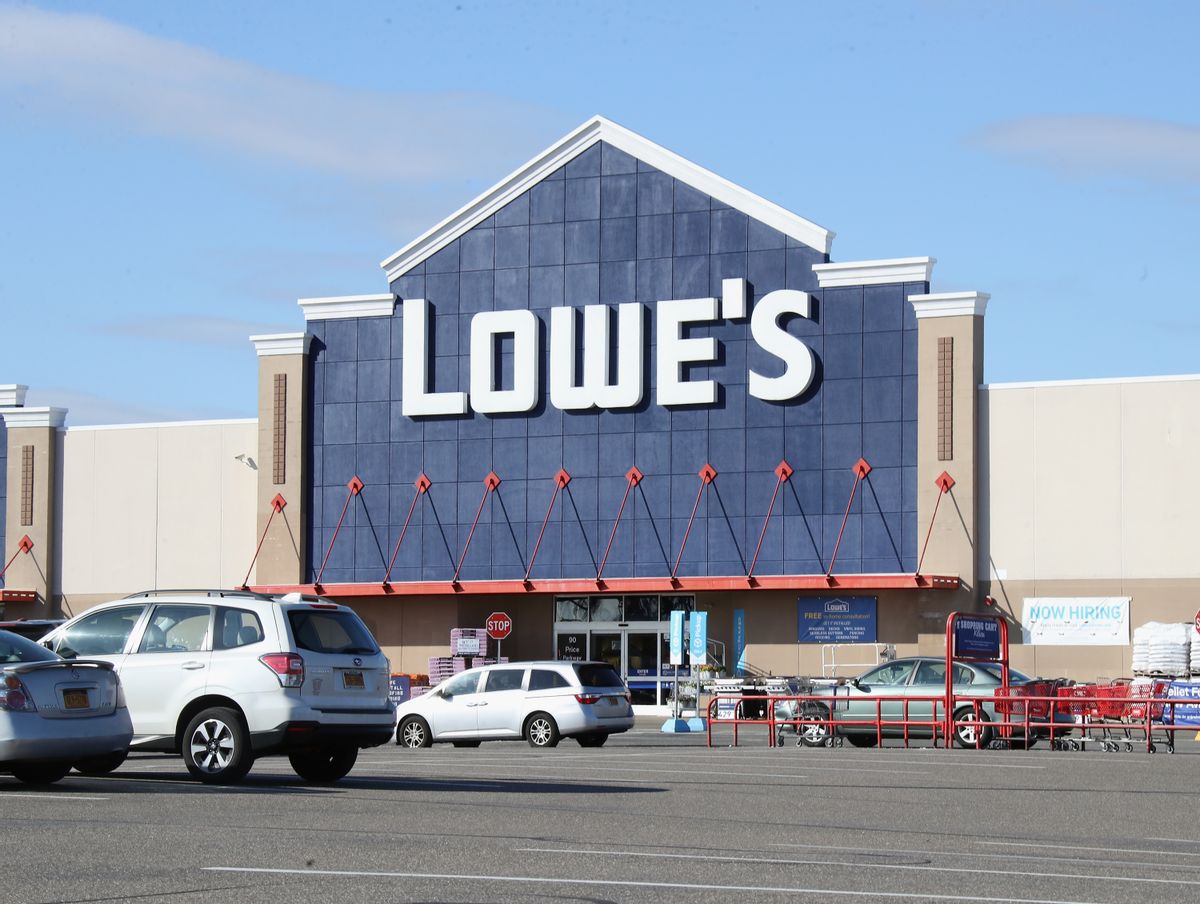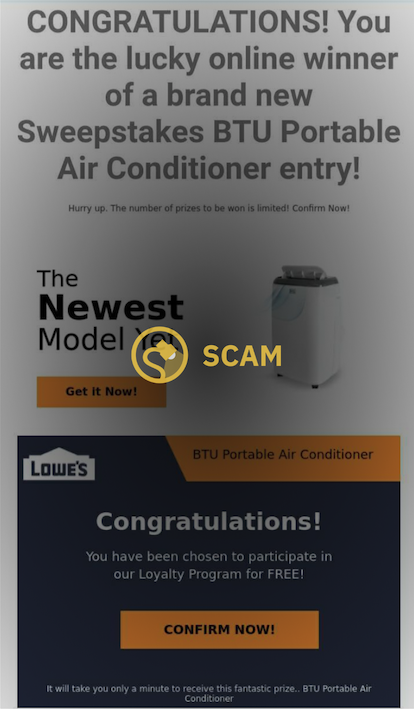In July 2022, during a heat wave across the U.S. and other countries, we reviewed an email that claimed Lowe's Home Improvement was giving away free air conditioners in a sweepstakes. In reality, there was no giveaway, and the email was a scam. Scammers were pretending to be Lowe's in an apparent phishing attempt to get people's personal information, such as credit and debit card numbers.
The scam email read, "CONGRATULATIONS! You are the lucky online winner of a brand new [Lowe's] Sweepstakes BTU Portable Air Conditioner entry!"
We advise readers to never click links or call phone numbers that appear in these kinds of scam emails. The links will lead to phishing attempts, and the phone calls will connect you with scammers who likely will try to lure sensitive data from you.
Scam emails often contain obvious grammatical errors. Also, the "from" email address in scam emails can look unofficial, another sign of something suspicious going on. For example, instead of an official email address ending with "@lowes.com," the sender may have something like, "help@lowes-security-winner.co.com.cc." This would not be a legitimate email address for Lowe's.
Advice from the BBB
The U.S. Better Business Bureau (BBB) has published a number of articles about the dangers of phishing. In one of its advisories, the agency detailed how these kinds of scams work:
Phishing scams tend to follow a pattern. The victim receives an email, phone call or text message (called “smishing” or SMS phishing). The message urges the target to click a link, share information, call a phone number, or download an attachment which likely contains malware. In the case of an email or text, the link frequently leads to a form, which prompts the target to enter personal information.
Think twice before downloading anything from the internet, especially if it’s an attachment from an anonymous sender. Scammers will hide malware in an attachment and once downloaded, it can wreak havoc on your personal device or steal your personal information. If you're online at home, the scammer may also steal the IP address and then proceed to connect to any other device connected to your home wifi.
The BBB also has tips on how to avoid falling victim to these kinds of scams:
If something sounds suspicious, call the company directly or checking the company website directly. Don’t click on links in an unexpected email – type the URL for the company into the browser or do a web search to find the right website.
Don’t click, download, or open anything that comes from an anonymous sender. This is likely an attempt to gain access to your personal information or install malware on your computer.
Question generic emails. Scammers cast a wide net by including little or no specific information in their fake emails. Always be wary of unsolicited messages that don't contain your name, last digits of your account number or other personalizing information.


